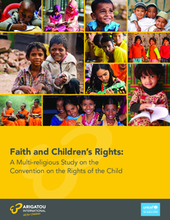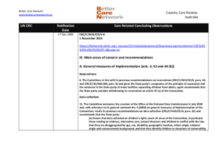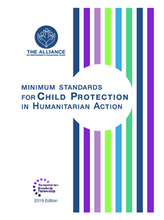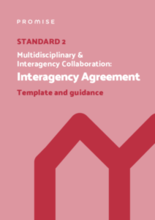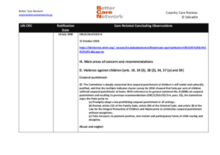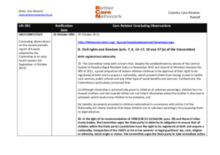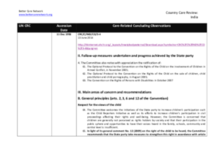Displaying 21 - 30 of 365
This study examines the Convention on the Rights of the Child (CRC) from the perspective of seven major religions, identifies the important role played by religious communities in advancing the rights and well-being of children over the past 30 years, seeks to identify the common values shared among different religions and the CRC and promotes continued action by religious communities to further implement the CRC in the future.
To mark the occasion of the 30th anniversary of the Convention on the Rights on the Child (CRC), a three-day event was held at the UN in Geneva, Switzerland. During the Child Protection session, Becky Smith of Save the Children gave this presentation on Children Without Parental Care.
On 18 November 2019, a workshop led by International Social Service Switzerland and Child Rights Connect was held in Geneva to mark the 30th anniversary of the Convention on the Rights on the Child (CRC), the 10th anniversary of the UN Guidelines on the Alternative Care of Children, and the 5th anniversary of Optional Protocol on the CRC on a communications procedure.
This country care review includes the care related Concluding Observations adopted by the Committee on the Rights of Persons with Disabilities and the Committee on the Rights of the Child.
The Minimum Standards for Child Protection in Humanitarian Action (CPMS), originally launched in 2012, set out a common agreement on what needs to be achieved in order for child protection in humanitarian settings to be of adequate quality. Years of implementing the CPMS in diverse settings revealed the need for a more user-friendly version of the Standards that would reflect recent sector learning and evidence; improve guidance on prevention, gender and age inclusion, and other cross-cutting themes; and promote applicability to a broader range of humanitarian contexts. Therefore, the Standards were updated in 2019 through a two-year revision process.
This document offers inspiration and guidance for drafting an interagency agreement which formalises multidisciplinary and interagency (MDIA) team collaboration between agencies involved in Barnahus (a child-friendly, interdisciplinary and multi-agency centre for child victims and witnesses where children could be interviewed and medically examined for forensic purposes, comprehensively assessed and receive all relevant therapeutic services from appropriate professionals).
This country care review includes the care related Concluding Observations adopted by the Committee on the Rights of the Child and the Committee on the Rights of Persons with Disabilities as part of its examination of El Salvador's initial reports, as well as other care-related concluding observations, ratification dates, and links to the Universal Periodic Review and Hague Intercountry Adoption Country Profile.
This country care review includes the Concluding Observations for the Committee on the Rights of the Child and the Committee on the Rights of Persons with Disabilities adopted as part of their examinations of Kuwait’s periodic reports.
This country care review includes the care related Concluding Observations adopted by the Committee on the Rights of the Child and the Committee on the Rights of Persons with Disabilities as part of the Committees' examinations of the periodic reports of India.
These Case Management Minimum Indicators provide measurable benchmarks to assess the quality of case management in humanitarian crises.

